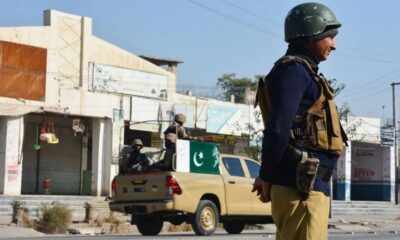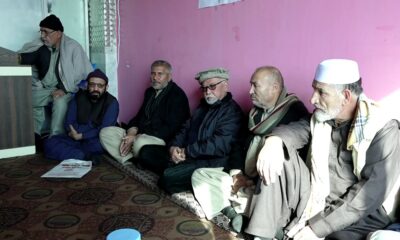Latest News
Wars in Afghanistan and Iraq have killed at least 500,000 people: Report
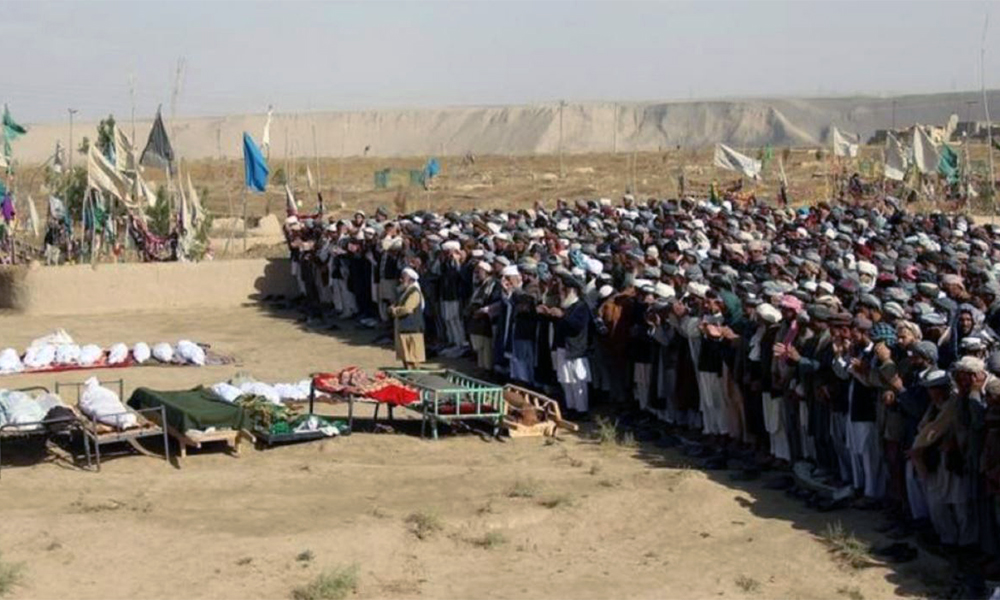
In the 76 countries in which the U.S. is currently fighting terrorism, at least three have been incredibly deadly: Iraq, Afghanistan and Pakistan.
And as the U.S. pullout from Afghanistan nears the one year mark, Brown University's Costs of War Project report details just how deadly they've been.
It counts how many people have been killed by the "United States' post-9/11 wars" in these three countries, along with others.
The report accounts for deaths in Afghanistan and Pakistan between October 2001 and October 2018, and in Iraq between March 2003 and September 2021.
In October 2001, the U.S. invaded Afghanistan to defeat the al-Qaeda and the Taliban (IEA), and 20 years later, on August 30, 2021, the U.S. completed a chaotic withdrawal of troops from Afghanistan as the Islamic Emirate of Afghanistan regained full control of the country.
In March 2003, the U.S. invaded Iraq and overthrew Saddam Hussein's regime under the pretense that the regime had weapons of mass destruction, most notably nuclear weapons.
The U.S. pulled out in 2011, paving the way for the rise of ISIS and the re-deployment of U.S. troops, military.com reported.
Pakistan is a little murkier. Since 9/11, the U.S. has conducted hundreds of drone strikes in Pakistan and used the country as a military staging area — but Islamabad has been accused of harboring terrorists as well.
The Costs of War report notes that the actual number of deaths are low because of the limits documenting death in conflict zones.
"For example, tens of thousands of civilians may have died in retaking Mosul and other cities from ISIS but their bodies have likely not been recovered," the report said.
It also notes that the death toll is only direct deaths — not indirect deaths, such as "loss of access to food, water, health facilities, electricity or other infrastructure."
Here's what they found:
6,951 U.S. military deaths.
Iraq: 4,550 deaths.
Afghanistan: 2,401 deaths.
Pakistan: 0 deaths.
There were also 21 civilian DOD deaths, including six in Afghanistan and 15 in Iraq, the Cost of War report notes.
7,820 U.S. contractor deaths.
Iraq: 3,793 deaths.
Afghanistan: 3,937 deaths.
Pakistan: 90 deaths.
109,154 national military and police deaths.
Iraq: 41,726 deaths.
Afghanistan: 58,596 deaths.
Pakistan: 8,832 deaths.
1,464 Allied troop deaths.
Iraq: 323 deaths.
Afghanistan: 1,141 deaths.
Pakistan: 0 deaths.
244,124 — 266,427 civilians.
Iraq: 182,272 — 204,575 deaths.
Afghanistan: 38,480 deaths.
Pakistan: 23,372 deaths.
109,396 — 114,471 opposition fighters.
Iraq: 34,806 — 39,881 deaths.
Afghanistan: 42,100 deaths.
Pakistan: 32,490 deaths.
362 journalists and media workers.
Iraq: 245 deaths.
Afghanistan: 54 deaths.
Pakistan: 63 deaths.
566 humanitarian and NGO workers.
Iraq: 62 deaths.
Afghanistan: 409 deaths.
Pakistan: 95 deaths.
479,858 — 507,236 total deaths.
Iraq: 267,792 — 295,170 deaths.
Afghanistan: 147,124 deaths.
Pakistan: 64,942 deaths.
Latest News
G7 envoys urge national dialogue for lasting stability in Afghanistan

Special Representatives of the Group of Seven (G7), including the European Union, have emphasized the importance of a national dialogue for achieving long-term stability in Afghanistan.
Following a meeting on Afghanistan in Geneva, Switzerland, G7 special envoys issued a joint statement calling for the restoration of women's rights and urging the Islamic Emirate to fight terrorism.
The statement reads: "Achieving sustainable peace and stability requires credible governance that represents all segments of Afghan society."
The representatives also expressed concern over the IEA’s decision to ban girls from attending medical institutes, warning that it will have devastating consequences for the citizens, particularly mothers and their infants.
The statement described this ban as unacceptable and called on the Afghan authorities to lift it immediately.
Earlier, countries and international organizations had called for the removal of restrictions on the education and employment of women and girls, emphasizing the need for a national dialogue.
In response to these concerns, IEA has repeatedly stated that it will not allow interference in the internal affairs of the country.
The G7 special envoys also expressed their concern about the recent terrorist attacks in Kabul and the surrounding region, warning that terrorism remains a serious threat to Afghanistan's security. They confirmed the actions of the IEA against Daesh but stressed the need for more decisive measures.
Latest News
Afghanistan’s bright future lies in educating girls: Karzai
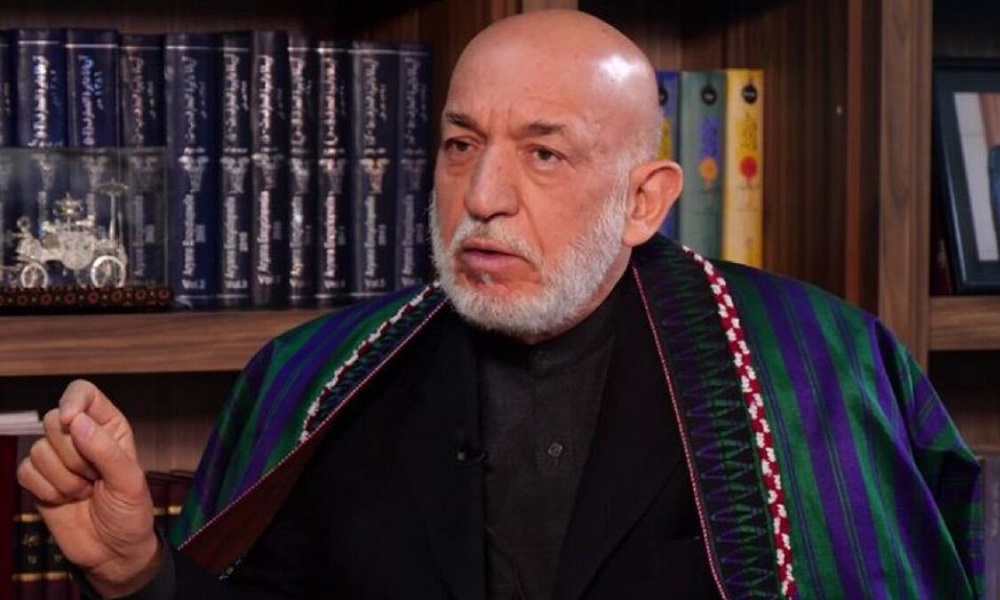
Hamid Karzai, the former president of Afghanistan, says the demand of Afghan girls for the reopening of schools and universities is their fundamental right and adds that Afghanistan cannot have a bright future without ensuring access to education for girls.
In a statement on his X (formerly Twitter) account, Karzai said: "The demand and voice of our country’s girls for education and knowledge is a rightful one and crucial for a prosperous Afghanistan."
He further emphasized, "Empowering the youth—both girls and boys—is the only way to achieve self-reliance, break the cycle of poverty, and drive the development and prosperity of society."
Karzai underscored that education is vital for Afghanistan’s growth and development, expressing hope that the doors of schools and universities for girls will be reopened as soon as possible.
Latest News
IEA to set up special courts to address pensions
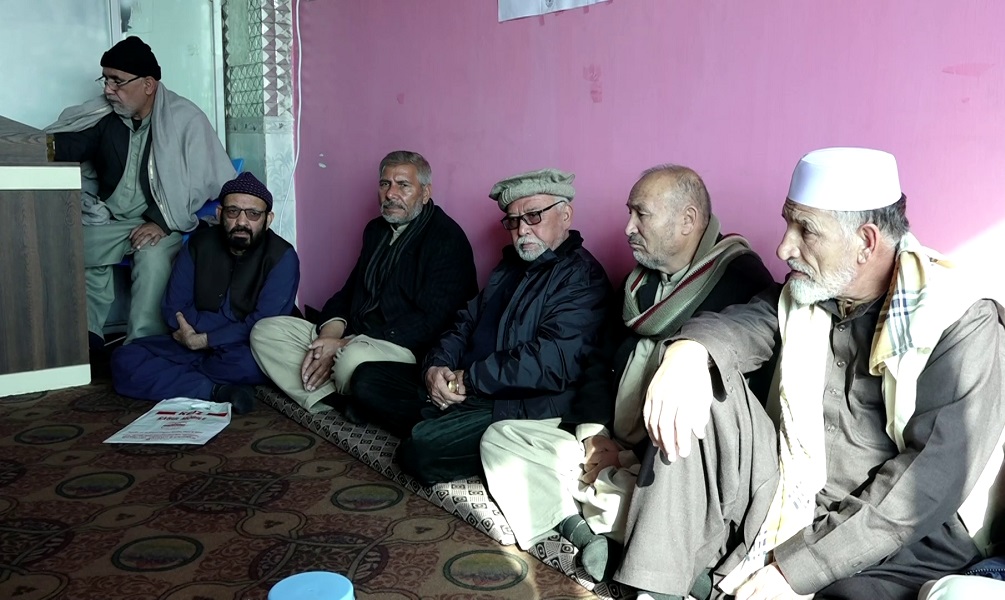
Mawlawi Hebatullah Akhundzada, the supreme leader of the Islamic Emirate of Afghanistan (IEA), has issued a decree to establish special courts to address pensions, Bakhtar news agency reported on Saturday.
According to the decree, the courts must confirm and process pensions in accordance with Sharia and law.
Pensioners have repeatedly voiced concern over delay in payment, saying that their financial challenges are growing.
Earlier this year, IEA's supreme leader banned money being deducted from salaries of government employees for pensions.
He also requested information on the tenure of employees and the total amount deducted from salaries for pensions.
-

 Regional5 days ago
Regional5 days agoBomb kills chief of Russian nuclear protection forces in Moscow
-

 Sport5 days ago
Sport5 days agoATN once again seals deal to broadcast upcoming IPL across Afghanistan
-

 Sport5 days ago
Sport5 days agoLanka T10: All three matches abandoned due to rain
-

 Latest News5 days ago
Latest News5 days agoIndia hoping to import coal and marble from Afghanistan
-

 Latest News5 days ago
Latest News5 days agoFuel prices rise in Herat as winter approaches
-

 Sport4 days ago
Sport4 days agoZimbabwe’s opening ODI against Afghanistan abandoned
-

 Latest News5 days ago
Latest News5 days agoJapan announces $27.5 million aid package to Afghanistan
-

 Latest News3 days ago
Latest News3 days agoTwo horror accidents on Kabul-Kandahar highway leave 52 dead










